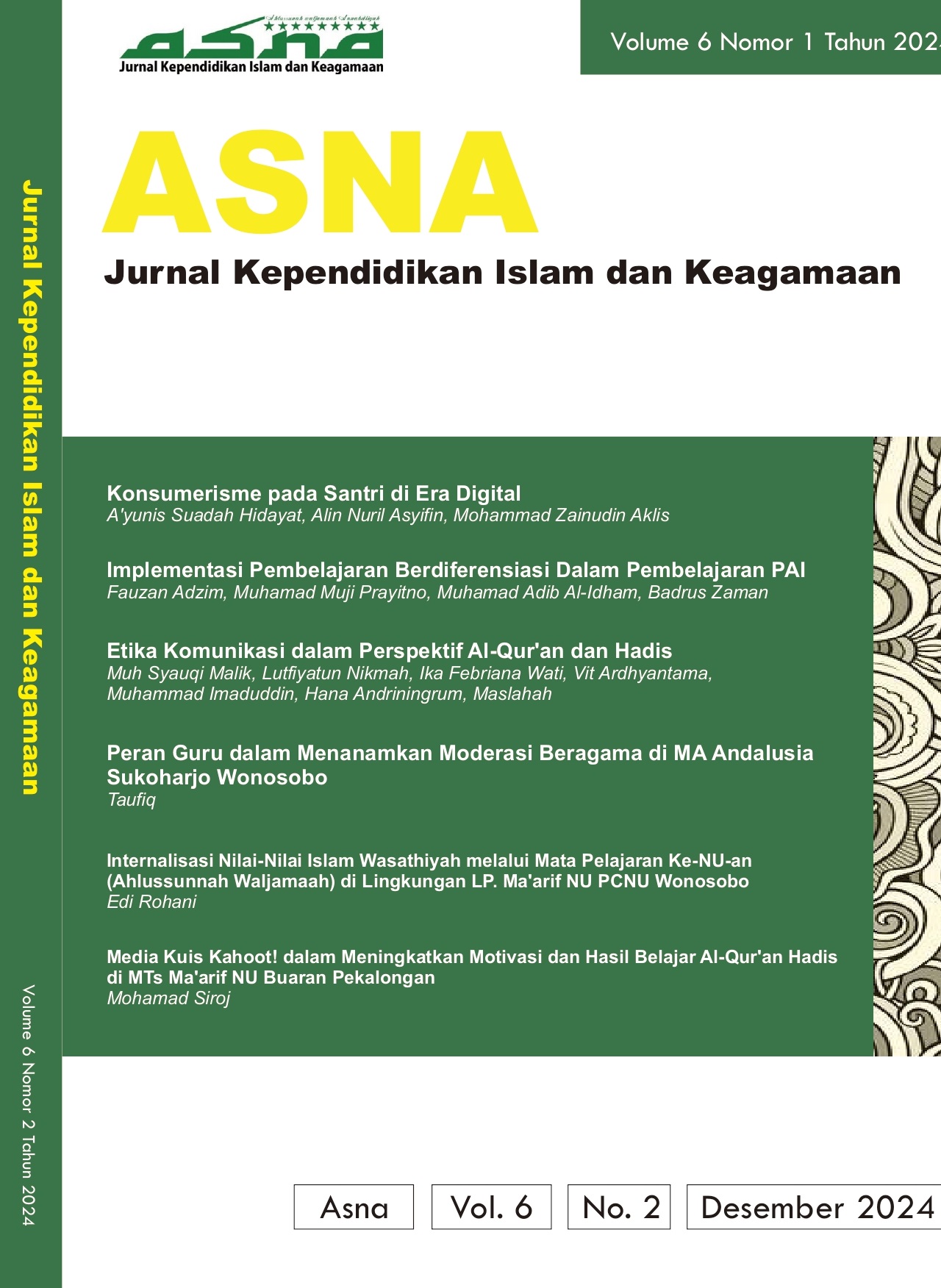ETIKA KOMUNIKASI DALAM PERSPEKTIF AL-QUR'AN DAN HADIS
Abstract
The hope in today's social communication is the creation of healthy interactions, mutual understanding, and building harmonious relationships between individuals and groups. However, with the rapid development of technology and social media, problems such as misunderstandings, misinformation, and social conflicts often arise. Unethical communication can have a negative impact, both on a personal level and the wider community. The solution offered in this study is the application of communication ethics according to the Qur'an and Hadith, which prioritizes the principles of honesty, prudence, and conveying useful messages. This study uses a qualitative approach with a descriptive method, which aims to analyze Islamic communication ethics based on the texts of the Qur'an and Hadith, as well as their relevance in the context of modern communication. The results of the study show that the principles of communication ethics in Islam are very relevant in overcoming communication challenges in the digital era, especially in reducing the spread of misinformation and improving the quality of social interaction. In conclusion, the application of Islamic communication ethics can be an effective solution to improve the quality of communication, improve social relations, and create a more tolerant and harmonious society during technological and information advancements.








